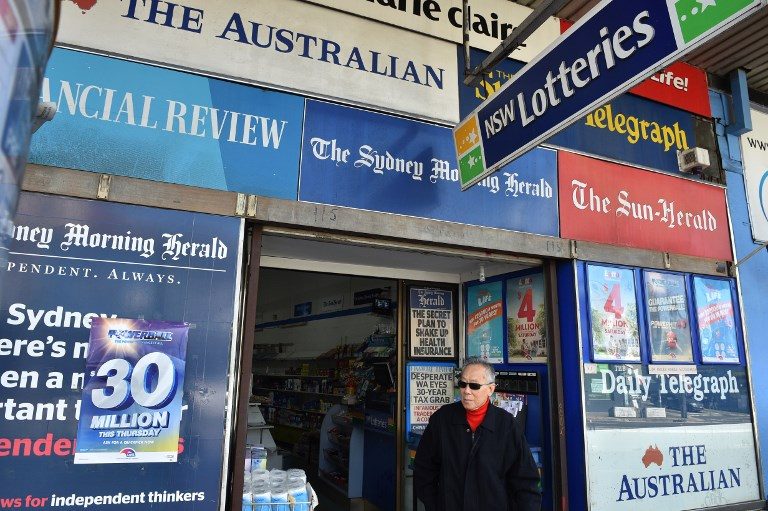SUMMARY
This is AI generated summarization, which may have errors. For context, always refer to the full article.

SYDNEY, Australia – Controversial changes to Australia’s media laws neared agreement Thursday, September 14, in a deal likely to result in significant concentration of ownership, but also a probe into the impact of platforms like Google and Facebook on the industry.
Under legislation introduced in the 1980s to protect diversity, media companies are blocked from owning television, radio and newspaper assets in the same city, while metropolitan and regional broadcasters are barred from merging.
Major players in the market have long pressed for change, arguing the rules are outdated and do not account for digital media platforms and new publishers like Google and Facebook and video streaming giants such as Netflix.
Canberra unveiled plans for a revamp 18 months ago and a final deal was struck in the Senate, where the government needs the support of independents, including the right-wing One Nation party, to pass new laws.
“This is not 1988, the internet does exist. The media laws were crafted for an era which today is barely recognizable,” Communications Minister Mitch Fifield told the upper house in a late-night session Wednesday, September 13.
“We have the support of essentially the entire Australian media industry.”
Under the changes, which are set to gain final approval later this week, a company will be allowed to own a TV station, newspaper and radio station in a single market.
The “reach rule”, which prevented a single TV broadcaster from reaching more than 75% of the population, will also be repealed.
The opposition Labor party and the Greens are against the “two out of three” rule being scrapped, arguing it will lead to a higher concentration of media ownership, notably in the hands of Rupert Murdoch’s News Corporation.
To reach agreement with the independents, the government had to make concessions, including establishing a Aus$60.4 million (US$ 48 million) fund for regional and small publishers and more training for journalists.
Independent Senator Nick Xenophon, whose support was crucial, said he had also secured a deal for an inquiry into the impact of platforms like Google and Facebook, which he said were getting billions in advertising revenue in Australia, but paying little tax.
“It will be a world first inquiry into the power of Google and Facebook and other social media platforms, the impact on the media, issues of copyright and market domination, how do we level the playing field for media organizations?,” said Xenophon.
Like other international media organizations, those in Australia have suffered from declining advertising revenues and circulation, with many slashing staff levels and costs. – Rappler.com
Add a comment
How does this make you feel?
There are no comments yet. Add your comment to start the conversation.